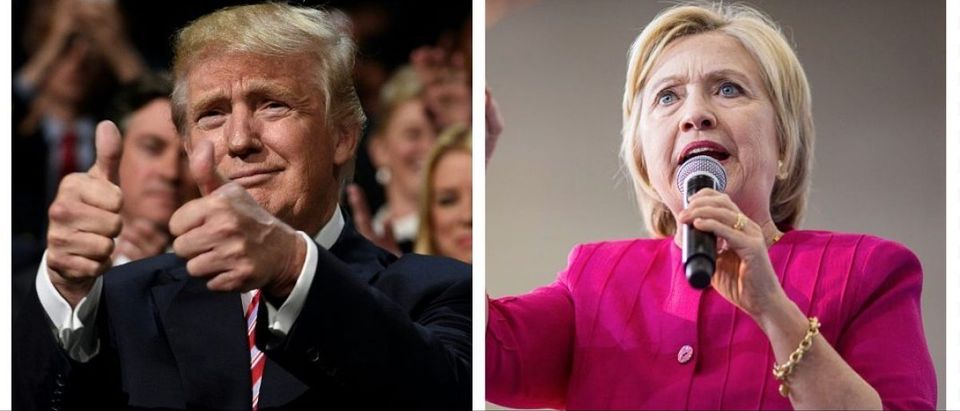This weekend I read a Newsmax.com article with the headline “Trump revisits Hillary’s 1996 comment about black ‘super predators’”. In the referenced remark, Clinton referred to packs of roving youths, whom she described as having “no conscience, no empathy”. In his tweet last Friday Trump asked his followers whether Clinton had apologized for the remark. Leaving aside the fact that she reportedly did in fact do so last February, Trump’s tweet raises a question about the sincerity of his much vaunted rejection of “political correctness”.
Because of my own experience on the campaign trail, I found myself asking whether I would have criticized an opponent for failing to apologize for a remark that was objectively a true statement. Truth is one of the regular casualties of so-called political correctness, a fact that has damaging effects upon our society’s ability to deal with challenging threats on a factual basis. This is probably the main reason for resisting the temptation to self-censor one’s remarks for fear of offending the self-righteous enforcers of politically correct speech.
This being so, what sense does it make to criticize someone for failing to apologize for a remark that is provably accurate? Gang members who act with no conscience or empathy are a special breed of predator, arguably more dangerous than any other. They are likely to engage in random acts of violence coldly calculated to demonstrate their loyalty or power; or to instill fear, with no other motive than their idiosyncratic will. They are in effect a species of terrorists, whose ideology leaves those outside the circle of their self-will without intrinsic significance, and therefore without humanity.
It is their lack of human empathy that makes them such a danger to people in their neighborhood, people with whom they otherwise share some background and experiences, some common ground that would normally make them less likely to prey upon their own With this thought in mind, it’s clear that Trump’s tweet implicitly validates the perspective of political correctness, in which ideological conformity is more respected than truth. In order to score a point against his opponent, he actually invites his audience to look upon her from the very perspective he has pretended to inveigh against in order to validate his image as an “outsider”.
Does he intend this ironically? If so, he achieves his effect at the expense of truth telling. Hillary Clinton did not simply call “African-American youth” super predators. She referred to an especially virulent form of unconscionable gangsterism. Since her characterization of those involved in it is provably accurate, the suggestion that she should apologize is predicated on a particularly virulent and dangerous application of so-called “political correctness”.
Trump’s tweet comes in the context of his efforts to appear more appealing to black Americans. But he does so with a criticism of his opponent that encourages black people to disregard facts that must be dealt with objectively if the black community is, for example, to understand police actions predicated on those facts. Obviously, if Hillary Clinton has to apologize for accurately describing those facts, this encourages the assumption that police are blameworthy when they act on the truth those facts represent.
Someone who truly cared for the well-being of black Americans would not be willing to encourage the specious sensitivity to imagined slights that allows the forces of political correctness to pose as friends of black Americans, when in fact the mentality they encourage makes it more difficult for society’s law enforcement officers to deal with cold-blooded killers deeply threatening to their lives.
As it stands, and in the context of his campaign to woo black voters, the content of Mr. Trump’s tweet reflects a willingness to say quotable things calculated to please black people, knowing full well that doing so abets a damaging lie. This may be a shrewd way to advance one’s fortunes in business or in other endeavors that arguably owe no respect to the common good of the whole community.
But if one seeks the presidency of the United States on this basis, he falls prey to the suspicion that he will advance his interests in that office in much the same way. However, of all the officials in the national government of the United States, the President is the one most especially charged with caring for the country’s common good. When and if he advances his own interests by ignoring or sacrificing it, he abandons the good purpose for which executive power has been entrusted to him.
It could very well be the case that Trump will gain rather than lose by attacking his opponent in this way. After all, Clinton’s kowtowing apology for speaking the truth is at least as objectionable as the fact that, to pander to blacks, Trump attacks her for having spoken it. In their behavior, both of them appear to validate the age old observation that, in human affairs, those who thirst most avidly for power are least to be trusted with it.
America’s Founders thought that entrusting the sovereign power of election to the more commonplace ambitions of the people at large would mitigate against the success of would-be tyrants. As things now stand, this year’s Presidential election appears very likely to prove that the Constitutional provisions the Founder’s adopted to assure this result have finally been fully circumvented. Whether the election goes to Trump or Clinton, the tyranny of purposefully self-serving deceit will triumph with the victor.


